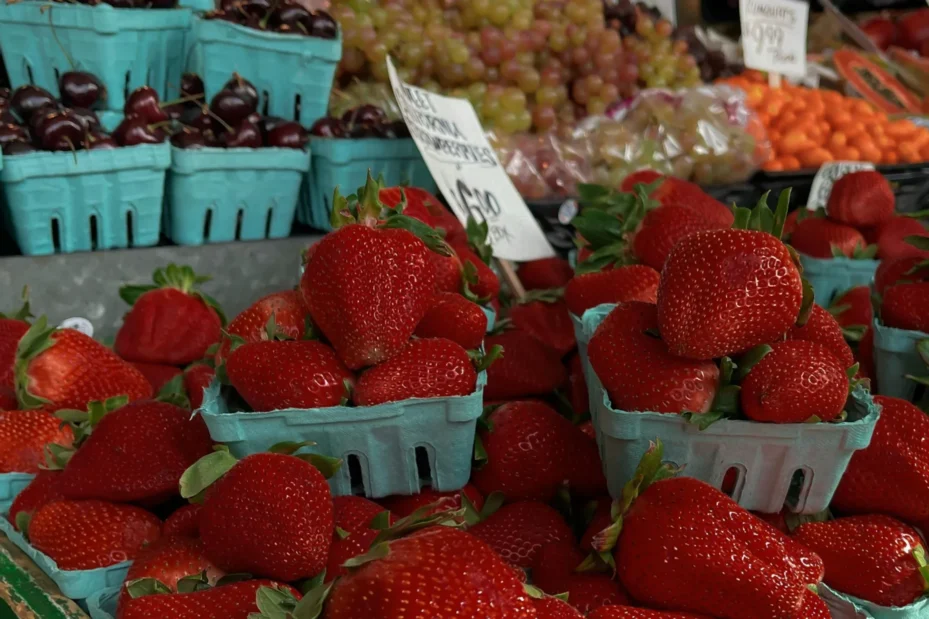We want to eat healthily and believe everyone else does too. As our diets have changed over time, we started to wonder how much different organic was from non-organic. We also wondered about the difference between free-range vs. cage-raised and the number of other product claims we saw. This post will discuss the research that helped us decide on our current balance.
Is it all that or is it Marketing?
Two things sparked a revisiting of these topics. I have spent time on marketing. From my experience, I know many things get sold to people as premium lifestyle choices rather than the reality of the true limited benefits of an idea. We had also been talking with one of our local farmers. We realized how much agriculture had changed over time. These two things are where our investigation into organic or not started.
Turns out, it is Subjective
In the US, the USDA has numerous regulations on what can be certified organic and what can’t. The simple version of what organic means is here. It however does get more complex quickly once you dig in. But really, is organic better for you? That depends on your definition of better.
Better is a subjective term. Is it better for us from a nutrition point of view? Are the animals and plants treated more humanely? Does it fight climate change or the use of chemicals in the environment? Why is it exactly that organic is better is the question.
Is Also Complicated
We learned there are multiple different types of organic farm production. Each type of production such as fruits and vegetables vs livestock has its trade-offs. For the sake of brevity, we will focus on produce in this post.
Nutrition and chemicals (pesticides and fertilizer) are the things most often discussed when it comes to organic produce. The answer to if they are better in these three areas is maybe. When we remove all emotional context and simply look at data and studies, according to the experts they show some improvement over other farming methods.
Nutritional Advantage is a Maybe
Nutritionally, studies have shown there just aren’t major differences. There is evidence of organic farming methods producing slightly better nutritional value but there are small differences. Yes, that word is subjective, and therein lies the challenge of saying they are better or not.
Chemicals Are Problems
The area in which they can have an advantage is synthetic fertilizers. The primary element talked about here is cadmium used in those fertilizers. It is generally (there is that subjective again) agreed upon that non-organic produce can have more cadmium. How much is worth it to you, and if that is worth it to you, is again subjective. According to the USDA, Cadmium absorption is also based on the area the product is grown, not just fertilizers.
Enter the Clean Fifteen and the Dirty Dozen in the discussion of chemicals. Both are lists that contain produce that contains more or less chemicals. The irony here (no pun intended) is that many of what are considered plants that are good for us such as spinach, kale, and strawberries make up the Dirty Dozen. These lists also make no distinction between organic and non.

It’s About Balance Though
Interestingly enough, even the USDA is aware of the challenge of this subject. Let’s take this out of the farm and into the sea. Seaweed can be about as organic as it gets. I do love sushi, sashimi, and miso soup, all of which usually contain seaweed. The unfortunate reality is that seaweed can contain both arsenic and mercury as well as other chemicals. Do those offset seaweed’s nutritional benefits? It depends on your personal risk tolerance and if you are in a high-risk population segment like pregnant women or young children.
Environmental Impact Can’t Be Ignored But…
In terms of environmental impact, it would be very hard to argue that less pesticides and fertilizers is a bad thing. Irrigation water, can the chemicals it carries, go somewhere. If the irrigation in the area drains back into surface water, the leftover phosphates and nitrogen can increase the risk of toxic blooms. This is a known problem for large systems like the Mississippi Basin. It can also be a problem for smaller lakes and irrigation systems such as the Columbia Basin Project in Washington. These blooms can be harmful to both people and animals.
Interestingly though, farmers have no love of chemicals either. Why? Because they cost money and take time and equipment to apply. All of that takes capital and eats into their profit margins. Farmers have used crop rotation as a way to limit their need for additional chemicals but that comes at the cost of leaving a field fallow. As agriculture adapts, new technologies are becoming available to help them reduce their chemical footprint. Still, we as consumers have expectations of perfect produce which is not always easy to grow that creates waste. That however is another complex subject.
Wrapping Up
This post has discussed some of the nuances and challenges of organic produce. It is up to you to decide if you should pay a premium for organic food. There are pros and cons to both organic and non-organic foods. If there is little difference and nutritional value and you are not in an at-risk group, maybe you won’t pay the premium. You may feel the extra cost is truly worth it for other reasons.
